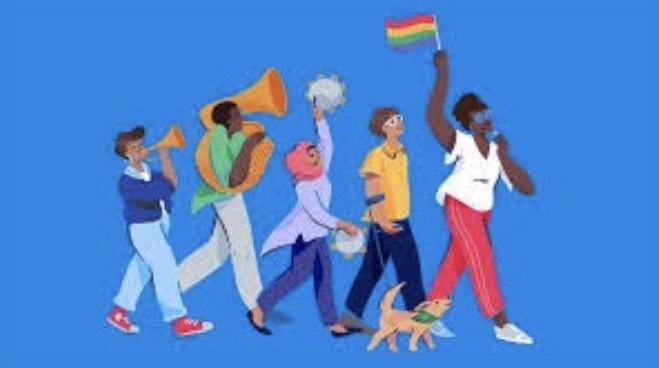Climate Redefined in SHS
December 19, 2019
From various backgrounds, religions and beliefs, among the student body of almost 2,000 Solon High School (SHS) is no stranger to diversity.
A little over a month ago, Ms. Short, the Principal of SHS, and Michelle Shene, the PTA committee chair for diversity and inclusion, had students take a national PTA sponsored Climate and Inclusivity Survey to help them draw a blueprint on how to tackle inclusion issues at SHS.
When asked to Ms. Short what the purpose of students taking the survey, she eloquently responded.
“Our first goal was simple: to get us a baseline, and to identify areas where we need to grow the most and then we can focus our efforts to make sure that we are zeroing in on [growing as a community] and try to improve the overall culture of Solon High School,” Short said.
There is no doubt that students across the nation, not just at SHS, are more comfortable with using derogatory terms and using offensive speech since the 2016 election. To alleviate the tension between the student body, administrative staff reinforces the rules that are currently in place and fights adversity with education.
“…The reality is, and I’m not trying to be political, but since the 2016 election, there initially was an uptick in incidents of, I would say, inappropriate comments, against minority groups and we went after that very aggressively,” Short said. “And [we as administrators] have tried to send a very aggressive message to our student body, and parents, that we don’t care what’s happening in the country around us. We will not tolerate that,”.
The administrative staff can only do so much to achieve the goal of inclusion since they cannot be everywhere in the building all the time. Teachers like Karen Smith, a Social Studies teacher at SHS, is one of the many faculty members who will not hesitate to chastise students when adversity emerges.
“I have zero tolerance myself for when people use [durogatory terms] so I’m not afraid to call people out on words that I find offensive,” Smith said.
PTA committee chair for inclusion and diversity, Michelle Shene, who grew up in the ever rural Knoch, Pennsylvania, says that diversity was nearly non-existent, but the people were very kind to one another.
“Anytime I think that people look within themselves to include other people or to learn about diversity is a good thing, regardless of where you live because eventually you’re going to be out in the real world and the real world is diverse,”
The administrative staff’s next step is to create a documentary on the student’s anonymous responses from the survey. They will document the anonymous individual student stories on how they have or have not experienced an inclusive environment for the purpose of creating awareness among the student body and staff. They plan to reveal the documentary sometime in late January.
If you or someone you know is being bullied, not limited to your demographics, don’t be afraid to seek help from your guidance counselor. Or contact the Safe School Helpline which is an anonymous source at 1-800-418-6423 ext. 359 or text 66746 and type “TIPS” as the message.

